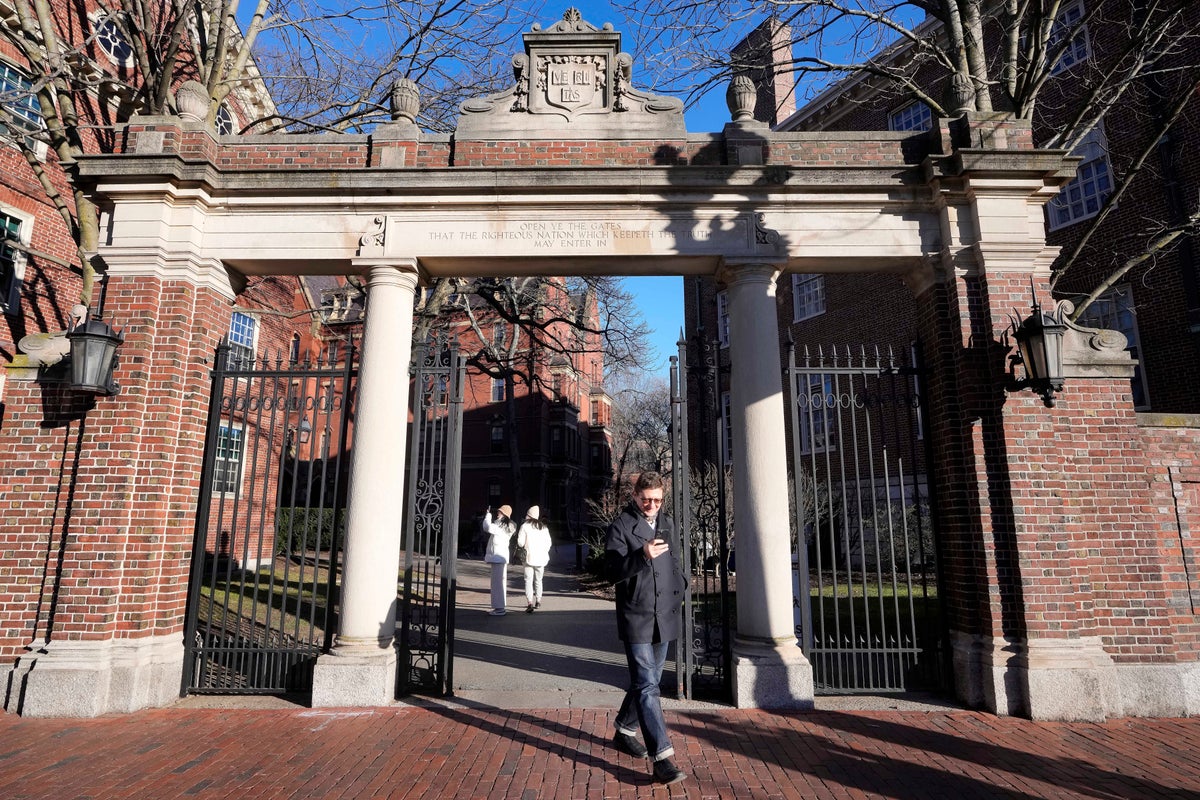
Harvard University on Wednesday sought to move beyond the firestorm brought on by the plagiarism allegations, congressional testimony and resignation of Claudine Gay, the school's first Black president, as it seeks a new leader and tries to heal divisions at the elite Ivy League school.
The search for a new president will begin “in due course” and will include “broad engagement and consultation with the Harvard community,” the Harvard Corporation, the school's 11-member governing board, said in statement Tuesday, adding that will be driven by “core values of excellence, inclusiveness, and free inquiry and expression."
“At a time when strife and division are so prevalent in our nation and our world, embracing and advancing that mission — in a spirit of common purpose — has never been more important,” leadership said.
As it looks for a new president, the corporation also needs to examine its role in Gay’s appearance before Congress, according to Khalil Gibran Muhammad, who teaches history, race and public policy at Harvard Kennedy School and directs the Institutional Antiracism and Accountability Project.
Muhammad said Harvard capitulated to “a McCarthy-style political attack” in accepting Gay's resignation and not calling out “the misinformation and outright lies” leveled at her by Republican critics, which he described as a “political witch-hunt.”
“The first mistake was accepting the terms of the congressional inquiry as legitimate," said Muhammad, who added that he's equally concerned about another person of color stepping in as president and "having to carry the weight of unfair accusations and character assassination connected to their racial identity.”
The school has tapped Alan M. Garber, provost and chief academic officer, to serve as interim president until a permanent replacement can be named.
Gay is the second Ivy League president to resign in the past month following the congressional testimony: Liz Magill, president of the University of Pennsylvania, resigned Dec. 9.
Following the congressional hearing, Gay’s academic career came under intense scrutiny by conservative activists who unearthed several instances of alleged plagiarism in her 1997 doctoral dissertation.
The Harvard Corporation initially rallied behind Gay, saying a review of her scholarly work turned up “a few instances of inadequate citation” but no evidence of research misconduct. Days later, the corporation said it found two additional examples of “duplicative language without appropriate attribution.”
Gay’s resignation was celebrated by the conservatives who put her alleged plagiarism in the national spotlight.
“Two Down. One to Go.” New York Rep. Elise Stefanik said Wednesday in a post on X, formerly Twitter. “Your silence is deafening @MIT. Not even an apology issued by your school to date. And zero commitment from your school to combat antisemitism and protect Jewish students.”
Gay, Magill and MIT’s president, Sally Kornbluth, came under fire last month for their lawyerly answers to a line of questioning by Stefanik, a graduate of Harvard, who asked whether “calling for the genocide of Jews” would violate the colleges’ codes of conduct. Kornbluth has retained her job.
The three presidents had been called before the Republican-led House Committee on Education and the Workforce to answer accusations that universities were failing to protect Jewish students amid rising fears of antisemitism worldwide and fallout from Israel’s intensifying war in Gaza,
Gay later apologized, telling The Crimson student newspaper that she got caught up in a heated exchange and failed to properly denounce threats of violence against Jewish students.
“What I should have had the presence of mind to do in that moment was return to my guiding truth, which is that calls for violence against our Jewish community — threats to our Jewish students — have no place at Harvard, and will never go unchallenged,” Gay said.
John Pelissero, an ethics scholar at Santa Clara University, said the rancor that led to Gay’s departure as president is emblematic of how national politics have crept into institutions of higher learning.
“I think that what has changed in universities in the last few years is there is much more scrutiny being given politically to what goes on on university campuses and what kind of a learning culture is there versus a political or ideological culture,” he said.
The episode marred Gay’s tenure at Harvard — she became president in July — and sowed discord at the Ivy League campus.
Gay, who is returning to the school's faculty, said in her resignation letter that it has been “distressing to have doubt cast on my commitments to confronting hate and to upholding scholarly rigor — two bedrock values that are fundamental to who I am — and frightening to be subjected to personal attacks and threats fueled by racial animus.”







